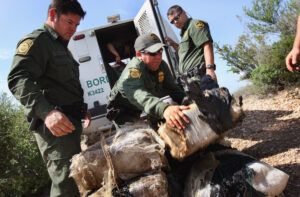August 2007 memos from WOLA and other experts on issues of interest in Bolivia, including drug control, the domestic economy, trade and investment strategies, nationalizations, international relations, and land reform.
August 2007
The complexities of Bolivia's situation today present a particular challenge for journalists and others writing for non-Bolivian audiences on the country's political transformation. The organizations listed below represent a variety of sources with significant experience and expertise in Bolivia on a range of issues with the ability to interpret today's events in their historical context and in the context of general U.S. policy toward the region.
The memos below by leading experts assess the Morales administration's policies in the areas of drug control, the domestic economy, trade and investment strategies, nationalizations, international relations, and land reform. Three additional memos analyze the judicial proceedings against former President Gonzalo Sánchez de Lozada, the work to date of the Constitutional Assembly that is re-writing the country's constitution, and the communications media within Bolivia. Please note that the views expressed in each memo reflect the positions of the authors and not necessarily those of the other organizations participating in this effort. Each memo provides contact information for the author, who can provide you with additional information and contacts in Bolivia who can speak to the specific issues raised in their memo.
We have put together this packet of information as Bolivian President Evo Morales is approaching the end of his second year in office. Elected with an unprecedented mandate for change, the Morales government has taken steps to address popular demands – such as capturing more revenues from the country's rich natural resources for the state and launching new initiatives to improve the lives of the country's poor, who make up the majority of the population. Yet the government has faced tremendous obstacles and has had difficulty in delivering on many of its promises. Efforts to ensure a more equal distribution of political and economic resources have inevitably met with resistance from some sectors and have furthered the social, economic and racial fissures that run through Bolivian society. The outcome of the effort to rewrite the country's constitution remains unclear.
We hope you will find the information provided in the memos below useful. Feel free to contact their respective authors for more information on these topics.
Coletta Youngers – "Bolivian Drug Control Policy" (click to read)
Washington Office on Latin America (WOLA) https://www.wola.org/
coletta@mindspring.com (202) 797-2171
Kathryn Ledebur – "Bolivian Drug Control Policy" and "Bolivia's Constitutional Assembly"
Andean Information Network (AIN) http://www.ain-bolivia.org/
kledebur@ain-bolivia.org (011) 591 (4) 448-6137
Douglas Hertzler – "Bolivia's Agrarian Revolution"
Andean Information Network (AIN) http://www.ain-bolivia.org/
doug.hertzler@emu.edu (202) 529-5378
Sarah Anderson – "U.S.-Bolivia Trade and Investment Relations"
Institute for Policy Studies (IPS) http://www.ips-dc.org/
saraha@igc.org (202) 234-9382
Nadia Martinez – "Bolivia's Nationalization"
Institute for Policy Studies (IPS) http://www.ips-dc.org/
nadia@ips-dc.org (202) 234-9382
Mark Weisbrot – "Bolivia's Economy – An Update"
Center for Economic and Policy Research (CEPR) http://www.cepr.org/
weisbrot@cepr.net (202) 293-5380 ext. 122
David Kane – "U.S. Must Assist in Bringing Gonzalo Sanchez de Lozada and Accomplices to Justice"
Maryknoll Office for Global Concerns http://www.maryknollogc.org/
dkane@maryknoll.org (202) 832-1780
Chris Krueger – "Bolivia's International Relations" and "Notes on the Communications Media in Bolivia"
Bolivia Ground
kruegerchris@hotmail.com (202) 232-2227




